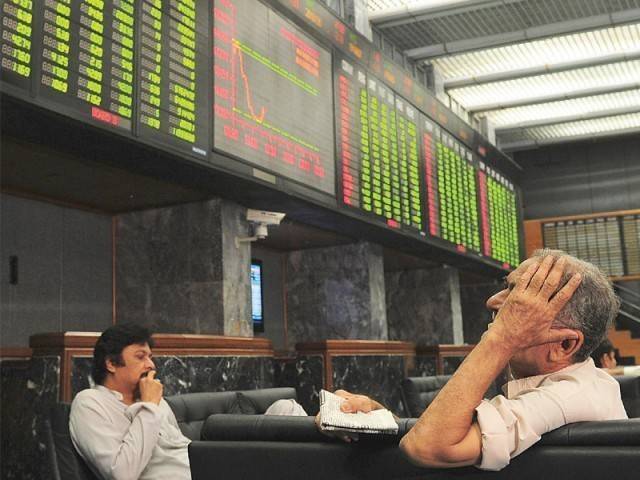
In his speech on Friday, Finance Minister Ishaq Dar proposed a number of budgetary measures that will have a direct impact on the participants of the capital markets. “This sector is expected to make its due contribution to the national exchequer,” Dar said while announcing yet another “rationalisation” in the capital gains tax (CGT) rates.
Ironically, Dar announced a large number of incentives for the agriculture sector during his speech, although its share in federal taxes is less than 1%. In contrast, total tax contribution of listed companies was Rs562.3 billion in 2014-15, which equalled 21.7% of FBR’s tax collection of Rs2.6 trillion.
“This is an anti-stock market budget. Every stock investor is already fully documented and tax-compliant,” said Muhammad Yasin Lakhani, who serves as director on the board of the Pakistan Stock Exchange (PSX).
“They have not done away with capital value tax or the tax on bonus shares, which are totally unjustified. In addition, they have tinkered with CGT rates and holding periods yet again,” he added.
Dar has proposed that the maximum taxable holding period for capital gains on shares be extended from four to five years. This will force investors to hold on to their stocks for a longer period of time to avoid excessive taxation, thus drying up trade volumes from the bourse.
The CGT rates for non-filers should be 18%, 16% and 11% for the holding period of up to one year, two years and five years, respectively, the budget document say. Currently, the CGT rates are 15%, 12.5% and 7.5% for the holding period of up to one year, two years and four years, respectively.
“Why is it so hard for the government to understand that changing tax rates every year drive investors away?” Lakhani said.
Similarly, Dar had imposed a “one-time” super tax last year on individuals, association of persons and companies earning over Rs500 million for 2014-15 at the rate of 4% for banking companies and 3% for others.
However, the finance minister went back on his word on Friday and announced that the super tax will remain in effect for 2016-17 as well. The decision will take away any gains that the corporate sector would have made because of the reduction of 1% in its income tax rate in the next fiscal year.
Dar also proposed doubling the withholding tax rate of 0.01% on the commission of PSX members, arguing that it is “quite low”. His proposals entail that the rate of tax on dividends in the case of non-filers be increased from 17.5% to 20%. The tax withheld in excess of 12.5%, however, will be adjusted in the case of return filing.
The proposed budget would also hurt the mutual funds industry. It proposes higher tax rates of 15% for non-filers receiving dividend from mutual funds. But more importantly, it proposes that the upper limit of investment for senior citizens in the Behbood scheme of National Savings be increased from Rs4 million to Rs5 million.
Many people invest in government-run National Savings Schemes (NSS) in the name of family elders. These schemes offer a higher rate than money market mutual funds operated mostly by private asset management companies.
As a result, growth in the asset base of the mutual funds industry has remained stunted in Pakistan. The finance ministry utilises cheap funds generated through NSS mainly for debt financing, which is not a productive use of public money.
“The decision to enhance the maximum investment limit for NSS will not bode well for the mutual funds industry,” said Anum Aqeel Dhedhi, chief investment officer at AKD Investment Management.
She also welcomed the decision to withdraw the Federal Excise Duty (FED), which was levied at 16% on the providers of financial services, including stock brokers and asset management companies.
“Separate tax authorities operating at federal and provincial levels collected the tax on services simultaneously, which was problematic,” Dhedhi said. Financial services’ providers were paying the FED to the FBR and a sales tax on services to the provincial revenue boards - a practice that smacked of double taxation.
However, PSX Director Lakhani said Dar does not deserve any credit for the FED withdrawal because the Sindh High Court has already declared its imposition illegal in the first place.

Published in The Express Tribune, June 4th, 2016.
Like Business on Facebook, follow @TribuneBiz on Twitter to stay informed and join in the conversation.


1729662874-0/One-Direction-(1)1729662874-0-165x106.webp)





1732084432-0/Untitled-design-(63)1732084432-0-270x192.webp)








COMMENTS
Comments are moderated and generally will be posted if they are on-topic and not abusive.
For more information, please see our Comments FAQ